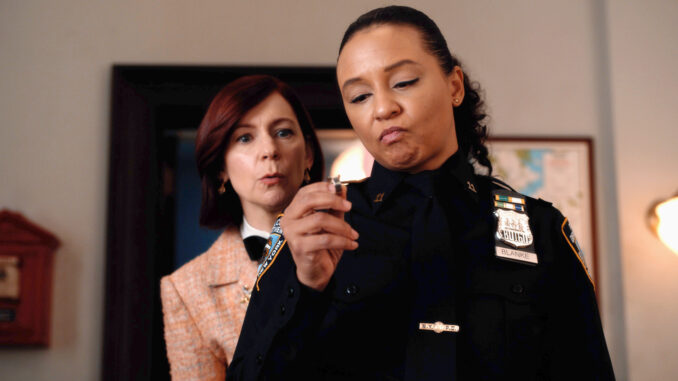
The Calculated Charm of Chaos: Why Elsbeth Tascioni is a Legal Fan’s Dream Spin-off
The landscape of legal dramas is a crowded one, often populated by steely-eyed prosecutors, morally compromised defense attorneys, and cases ripped from the headlines. Yet, amidst this familiar terrain, a singular figure emerged from the hallowed halls of The Good Wife and The Good Fight to carve out her own distinct niche: Elsbeth Tascioni. Now, with her own eponymous spin-off, Elsbeth doesn’t just offer another procedural; it presents a refreshingly intelligent, deeply charming, and uniquely satisfying experience that resonates profoundly with legal fans precisely because of its unconventional approach to truth and justice.
At the heart of Elsbeth‘s undeniable appeal is its titular character herself. For legal fans accustomed to characters defined by their gravitas, relentless logic, or aggressive courtroom theatrics, Elsbeth Tascioni is a delightful anomaly. Her apparent eccentricity – the meandering questions, the seemingly random observations, the disarming lack of conventional legal polish – is, in fact, a finely honed strategic weapon. She operates on a plane of intuition and observation that transcends standard legal argumentation, seeing patterns and connections invisible to others. This makes her not just a brilliant lawyer, but a brilliant investigator of human nature. Legal aficionados, who appreciate the nuanced dance of legal strategy and the power of an unexpected angle, are captivated by Elsbeth’s ability to consistently outmaneuver her more conventional adversaries, often by simply being herself. Her genius lies in her ability to make others underestimate her, only to deliver a knockout blow with a truth gleaned from an innocuous detail.
Furthermore, Elsbeth cleverly inverts the traditional “whodunit” into a “howdunit” or “whydunit” from the outset. Each episode typically reveals the perpetrator in the opening minutes, shifting the dramatic tension from who committed the crime to how Elsbeth will uncover the intricate path of their deceit. This structural choice is a breath of fresh air for viewers who might be fatigued by predictable plot twists. For legal fans, it transforms each episode into an engaging intellectual puzzle. It’s less about the shock of a reveal and more about the meticulous, often circuitous, process of deduction. It allows the audience to revel in the journey of investigation, observing Elsbeth piece together disparate clues – a misplaced object, an awkward phrase, a telling mannerism – that expose the meticulous lies of the guilty. This focus on the process of uncovering truth, rather than just the outcome, speaks directly to the methodical and analytical mind of someone drawn to the intricacies of the law.
Beyond the courtroom and the grand reveals, Elsbeth offers legal fans a profound appreciation for the human element of justice. Elsbeth doesn’t just read law books; she reads people. Her investigations often delve less into dusty precedents and more into the psychology of the perpetrator and their victims. She understands motive, not just as a legal requirement, but as the intricate tapestry of human desire, fear, and ambition. Her casual conversations, which might seem off-topic to the uninitiated, are in fact deep dives into the emotional undercurrents that drive criminal behavior. This emphasis on observational acuity and understanding human nature adds a rich layer of complexity, acknowledging that the law, at its core, is about human interactions and their consequences. It’s a reminder that justice isn’t always found in statutes but often in the overlooked details of a person’s life.
Finally, Elsbeth carries the esteemed legacy of The Good Wife and The Good Fight, two series lauded for their sharp writing, complex characters, and intelligent engagement with contemporary legal and social issues. While Elsbeth has a lighter, more whimsical tone, it retains the intellectual rigor and clever plotting that distinguished its predecessors. It trusts its audience to follow subtle cues and appreciate nuanced performances. For legal fans, this connection ensures a level of quality and sophistication that is often missing in other procedurals. It’s a universe where the legal system, while sometimes absurd, is always treated with a fundamental respect for its complexity and its human impact.
In a television landscape often dominated by predictable legal tropes, Elsbeth stands out as a charming, ingenious, and deeply satisfying experience. Its distinct protagonist, fresh procedural format, emphasis on human psychology, and intellectual integrity make it not just another legal drama, but a love letter to the art of observation and the pursuit of truth. For legal fans who crave smart writing, compelling characters, and a unique perspective on justice, Elsbeth Tascioni’s world is an utterly irresistible destination.
